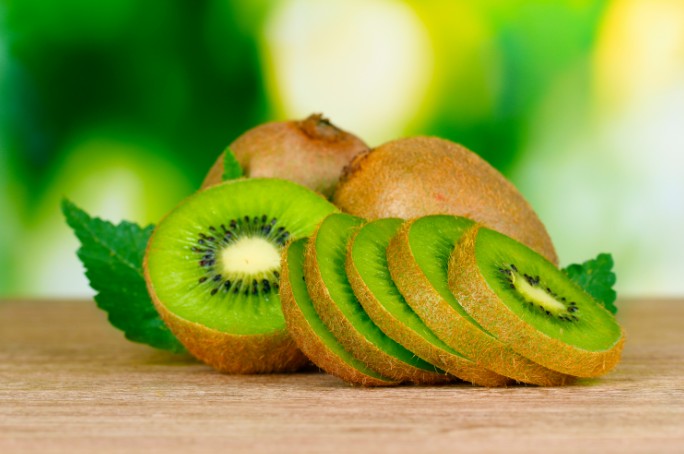Kiwi
It's not just tasty and juicy - kiwis have many health benefits
 Photo: Shutterstock
Photo: ShutterstockIt's juicy, refreshing, and visually appealing. It's enjoyable to eat on its own - but it also adds a special taste to fruit salad. Yes, it's the kiwi. It turns out this fruit is unique not only in its appearance and taste but also in the health benefits it contains. The kiwi is very unique in its vitamin C content. A medium-sized fruit can contain almost the entire daily amount of vitamin C a person needs. The functions of the vitamin are well-known, for example: Vitamin C acts as a detoxifier that develops in the body (antioxidant), which is very important for protecting different cells. It also protects the DNA, contributing significantly to cancer prevention. Vitamin C helps prevent atherosclerosis and brain stroke by preventing cholesterol oxidation and converting it into a substance that clogs blood vessels. It aids in preventing cataracts as well.
Kiwi plays an important role in maintaining the digestive system because it is rich in dietary fibers. The fibers benefit the digestive system in several ways: they prevent constipation and increase bowel movement frequency, increase stool volume, soften it, and enhance bowel motility. The fibers support increasing the population of friendly bacteria in the intestines and help balance cholesterol and sugar levels in the blood. The fibers also help prevent cancerous processes in the colon and more.
 (Photo: shutterstock)
(Photo: shutterstock)Kiwi assists with digestive system activity from another aspect. It contains various digestive enzymes, the main one being actinidin, which aids in the protein digestion process and accelerates intestinal activity. Thus, the enzymes reduce instances of bloating and fermentation in the intestines and expedite food passage and cleansing in the intestines. The kiwi is very rich in potassium. Potassium is important for the body's health for several aspects, such as assisting in balancing heart rate and blood pressure. It helps balance the body's acidity and alkalinity. The kiwi is rich in lutein and zeaxanthin. These substances contribute to eye health and vision. The glycemic index level (the rate at which kiwi sugar converts to glucose in the blood) of the kiwi is relatively low, which makes it easier for diabetics to consume it. The kiwi can be eaten in different ways: you can peel it or cut it in half and then eat it with a spoon like a melon. Those with a family tendency to form gallstones or kidney stones should significantly limit their kiwi consumption due to the oxalic acid it contains.
Eliyahu Shechter is an iridologist and a natural therapist

